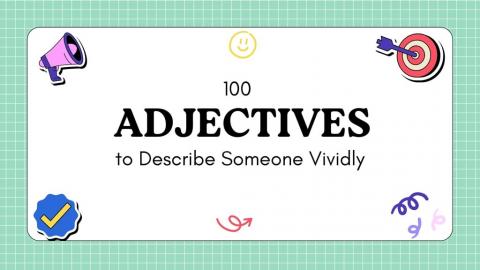Curious about which college degrees might not pay off? The term “most useless degrees” often pops up when discussing majors with low salaries or tough job markets, like Fine Arts or Philosophy.
Our data-driven guide explores these degrees, why they’re debated, and how to make any major work for you.
The Most Useless Degrees: Frequently Cited
Below is a table summarizing the most useless degrees, their average salaries, reasons for being considered "useless," and strategies to enhance their value.

| Degree | Average Salary | Reasons for Being "Useless" | Strategies to Enhance Value |
|---|---|---|---|
| Fine Arts/Studio Arts | $30,000–$40,000 | Low job prospects, competitive art market, niche roles like teaching or design. | Build a portfolio, exhibit art, develop business/marketing skills, consider apprenticeships. |
| Philosophy | $35,000–$45,000 | Limited direct career paths, often requires further education (e.g., law school). | Pair with business or computer science, develop writing skills, pursue pre-law tracks. |
| Theater/Drama | $25,000–$35,000 | Highly competitive, unstable earnings, few stable jobs beyond acting. | Build performance reels, gain experience through productions, learn stagecraft or media skills. |
| Liberal Arts/General Studies | $35,000–$45,000 | Broad and vague, high underemployment (~50%), lacks specialized skills. | Pursue graduate degrees, focus on transferable skills like communication and critical thinking. |
| Anthropology | $30,000–$45,000 | Niche roles, often requires advanced degrees for academia or museums, limited entry-level jobs. | Specialize (e.g., bioarchaeology), pair with social work or urban planning, learn GIS mapping. |
| Photography | $30,000–$40,000 | Oversaturated, many learn skills without degree, competitive freelance market. | Build portfolio, gain apprenticeships, focus on digital skills and networking. |
| Dance | $25,453 | Relies on auditions and networking, significant debt risk, uncertain career prospects. | Focus on skills training, consider majors with better job prospects, network extensively. |
| Music | $29,592–$40,000 | Success depends on talent, competitive teaching/performance roles, unstable income. | Specialize in sound engineering or media, build portfolio, network in music industry. |
| Communications | $35,000–$45,000 | Broad focus, declining traditional media, limited direct job experience. | Specialize in PR, digital marketing, or journalism, learn SEO/video editing, build portfolio. |
| Criminal Justice | $35,000–$45,000 | High competition, modest salaries, many entry-level roles don’t require degree. | Specialize in forensic science or cybersecurity, gain internships, learn data analysis. |
Additional Degrees
Beyond the top list, other degrees frequently mentioned include:

- Biology: Average salary $36,175, often theory-focused with limited options without postgraduate studies. Suggested alternatives include Human Biology ($40,211) or Biotechnology ($46,436).
- Psychology: Average salary $35,412, bachelor’s degree limits career options, with clinical roles requiring advanced degrees. Pursuing graduate studies or combining with HR can enhance value.
- Education: Average salary $25,680, noted for low pay, high burnout, and location-dependent job availability. Specializing in educational technology or special education can improve prospects.
- Culinary Arts: Salaries around $25,000–$35,000, low ROI due to rising tuition costs, with experience often mattering more than a degree. Consider restaurant work or trade schools instead.
- Fashion Design: Average salary $44,746, intense competition, success depends on portfolio and connections. Learning CAD and complementary skills can help.
- Religious Studies: Career options restricted to niche academic or nonprofit sectors, with low pay and high debt risk. Sociology or international relations are suggested alternatives.
- Journalism: Print media declining, oversupply of graduates, competition with bloggers and social media. Consider economics, law, or political science for niche reporting.
- Travel and Tourism: Average salary $35,238, low-paying and subject to economic fluctuations. Business Administration is a suggested alternative.
- Woodworking: Average salary $51,606, seen as a trade better learned through workshops or apprenticeships rather than a degree.
- Entrepreneurship: Average salary $51,885, success unpredictable, many startups fail. Pairing with Computer Science or gaining mentorship can help.
The Cost Factor: Payback Periods
The payback period, or time to recover educational costs through salary, is another metric used by sources like uHomes.com. For example:
- Dance has a payback period of 151.28 years, indicating a very low ROI.
- Education has a payback of 21.2 years, reflecting low salaries relative to costs.
- In contrast, Criminal Justice has a payback of 5.39 years, suggesting better ROI despite modest salaries.
These figures highlight why some degrees are seen as less practical, especially in today’s competitive job market.
Why ‘Useless’ Is Debatable
Labeling the most useless degrees is subjective. Passion and hustle can turn even a Fine Arts major into a thriving animator or a Philosophy grad into a tech ethicist—think Steve Jobs, who credited calligraphy classes for Apple’s design edge.

Job markets also shift; today’s “impractical” major might be tomorrow’s hot ticket. Yet, online debates, like those on X, often roast degrees like Gender Studies or Theater, with users joking they “guarantee a barista gig.” These hot takes oversimplify things—success hinges on skills, networking, and adaptability, not just the diploma.
Data backs this: while Anthropology grads earn ~$40,000 early-career, those with internships or tech skills can outpace peers. The lesson? No degree is doomed if you play your cards right. What’s your take—ever seen a “useless” major lead to an unexpected win?
Strategies for Maximizing Value
Across all sources, common strategies to enhance the value of these degrees include:
- Specialization: Focusing on high-demand niches (e.g., digital advertising for Communications, forensic science for Criminal Justice).
- Practical Experience: Gaining internships, apprenticeships, or freelance work to build portfolios and networks.
- Additional Skills: Learning complementary skills like coding, data analysis, or digital marketing to increase employability.
- Further Education: Pursuing graduate degrees for fields like Psychology or Anthropology to access higher-paying roles.
- Networking: Building connections through industry events, workshops, or online communities to open doors to opportunities.
Conclusion
Yes, some degrees are labeled the "most useless degrees" due to challenges like lower pay or tough job markets—but no education path is truly worthless.
Whether it’s Fine Arts, Philosophy, or any other major, success comes down to how you use it. By combining passion, adaptable skills, and smart networking, you can defy the odds and build a meaningful career.
So, if you’re pursuing one of these degrees: own it, refine it, and prove its value.
Key Citations











